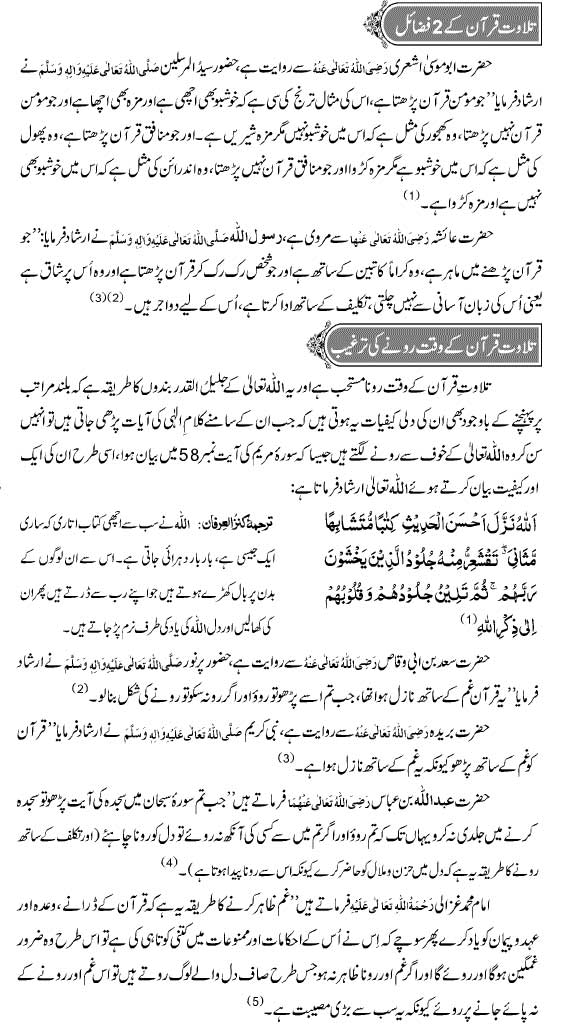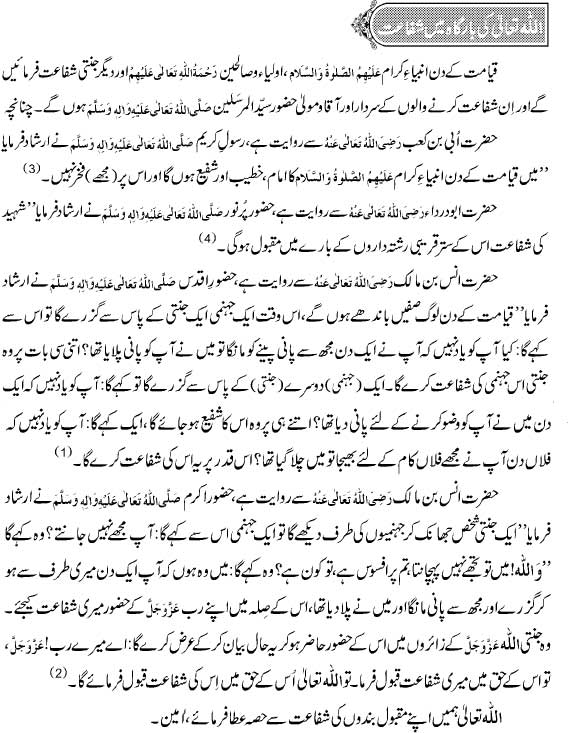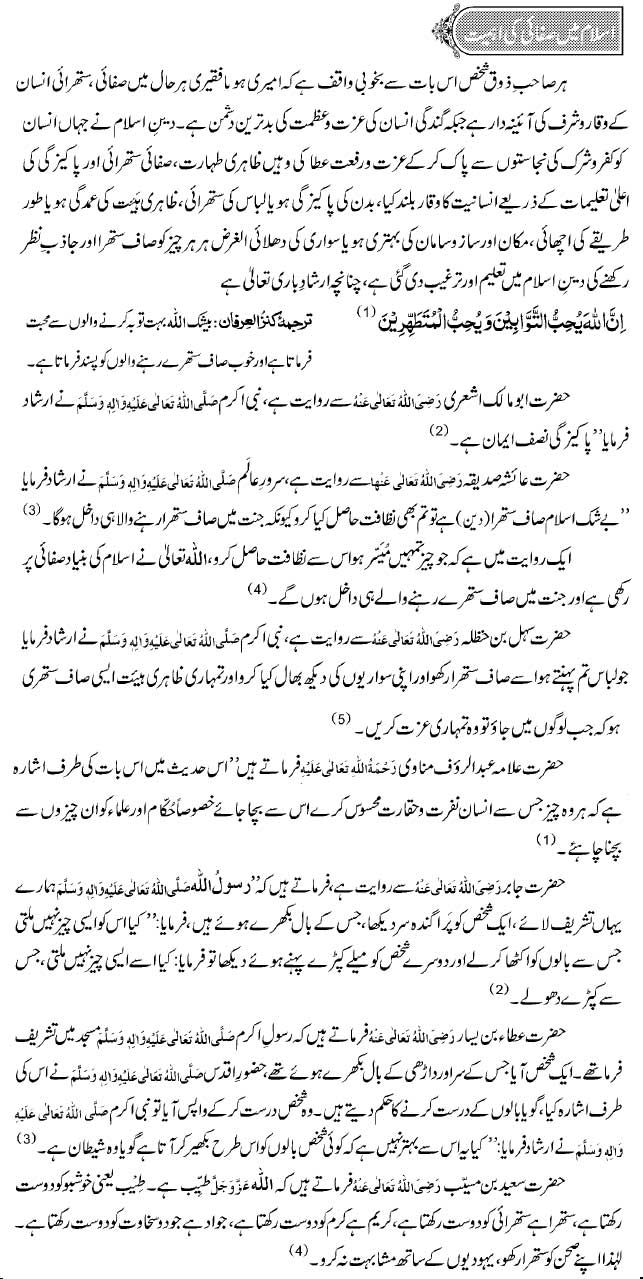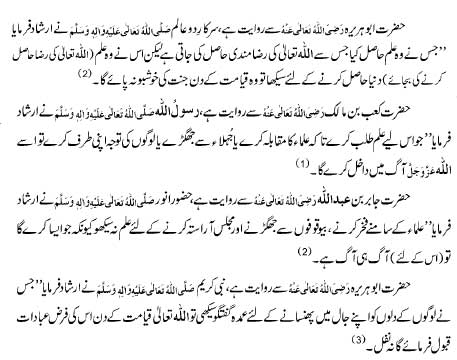
Sun Traverses Path Appointed By Allah, The Exalted
[ALLAH’S Quran – 36:38 ] “And the sun runs on its fixed course for a term (appointed). That is the Decree of the All-Mighty, the All-Knowing.”
The Prophet (Peace Be Upon Him) has said:
[Muslim, Book #001, Hadith #0297] “It is narrated on the authority of Abu Dharr that the Messenger of Allah (may peace be upon him) one day said: Do you know where the sun goes? They replied: Allah and His Apostle know best. He (the Holy Prophet) observed: Verily it (the sun) glides till it reaches its resting place under the Throne. Then it falls prostrate and remains there until it is asked: Rise up and go to the place whence you came, and it goes back and continues emerging out from its rising place and then glides till it reaches its place of rest under the Throne and falls prostrate and remains in that state until it is asked: Rise up and return to the place whence you came, and it returns and emerges out from it rising place and the it glides (in such a normal way) that the people do not discern anything ( unusual in it) till it reaches its resting place under the Throne. Then it would be said to it: Rise up and emerge out from the place of your setting, and it will rise from the place of its setting. The Messenger of Allah (may peace be upon him) said. Do you know when it would happen? It would happen at the time when faith will not benefit one who has not previously believed or has derived no good from the faith.”
When The Lord Punishes
Allah is the Most Merciful. It is out of His Mercy that He feeds us, provides us and gives us everything we ask for, despite our disobedience to His Commands.
But why does He punish, few may ask. We must know that just as Mercy is Allah’s attribute and Ar-Rahman and Ar-Raheem are His Beautiful Names, so is Justice His attribute and Al-Adl His Beautiful Name. Allah is the Most Just and He is the Judge.
He punishes His slaves – and He has full right to and He cannot be questioned regarding it – because of their own sins and rejection of Allah’s commandments and blessings. Moreover, He is never unjust or incorrect. He is the Most Perfect and everything He does is without a doubt correct. So, when He punishes He is carrying out justice.
Allah created us to worship Him. He created our life as a test to see who among us are best in deeds. He sent down guidance for us. He told us what is right and what is wrong.
He sent Prophets and Messengers to remind humankind whenever they went astray from the straight path. He revealed to us through Messengers about Himself. He sent enough evidences for humankind to believe in His message and submit to His worship, which are also for our own benefit because Allah is not in need of our worship. It is only we who stand in need of Allah.
Allah promised to reward us from 10 to 700 times more for every good deed we do. Allah answers our prayer when we call Him in distress and need. He removes us out of every difficulty.
Despite all of His countless blessings and favors, if man rejects Allah, refuses to follow the guidance though it is clear to him, and persists on the evil path, then Allah reminds the slave through a series of tests and trials that would surely evoke his inner conscience. When man still does not take heed, then Allah punishes him.
The way Allah measures a person’s evil is also reflective of His mercy. Indeed if He were to punish us for the disobedience and errors we do, though we are slaves to the King of all kings, He would not leave a soul on earth. All would be punished and destroyed. It is out His mercy that a sin is recorded as just one evil deed, while a good deed is recorded with a minimum reward of 10 times that deed.
Moreover, He wipes out that evil deed when we turn in repentance to Him. If we change ourselves and do good deeds, He out His infinite Mercy writes that evil deed down as a good deed for us. Nothing can be compared at all with His Mercy.
Furthermore, He does not punish any slave who has not received the message of Islam. Those who did not receive the message, will be tested on the Day of Judgment, as narrated in an authentic Hadith.
In the end, we must never forget who we are and who Allah is. Allah is our Master and He is All-Powerful. He does what He wishes and there is none who can question Him. But He will most certainly question us – our actions and our deeds.
There is no excuse for human beings. And we hope Allah forgives us and has mercy on us and does not make us among those who are punished. Ameen.
Allah Ki Bargah Mein Shifaat

Journey of Faith
Look up again.
Behold the Moon ? the Beacon of the Night sky.
Much much smaller than the Sun.
Much much nearer to us than the Sun.
Yet placed in the sky so magically, that it appears to the eye, almost the equal size of the Sun.
Have you ever wondered whose Hands had placed the Moon there, perfectly positioned, neither suspended nor supported.
Subhanallah (Glory be to Allah!), the Master creator and the perfect in Judgement.
The moon is a dark desolate place, giving out no light of its own. It merely reflects the light of the Glorious resplendent Sun. Facts that all of us surely know. But have you sought the deeper meaning behind these mysterious creations of Allah?
Why do you not think? [al-qur’an]
Man is Allah’s creation, created in His own image.
From man emerges intelligence, beauty, strength and understanding, and other Glorious Resplendent Sifat of Allah.
Like the moon that merely reflects the Sun’s glory, Man simply reflects Allah’s greatness and Oneness. Not man’s own abilities!
Some Special Things To Do For Friday Prayer
“O Believers, when the call is proclaimed for the prayer on Friday, come to the remembrance of Allah and leave off business, that is better for you if you but did know.” (Qur’an, 62:9)
Purifying and cleaning
The person intending to perform the Friday prayer is greatly encouraged to perform Ghusl (full bath or shower). The majority of the scholars are of the opinion that the Ghusl for the Friday prayer is recommended (Sunnah) and not obligatory. It can be performed starting from the time of Fajr Prayer. Also, if a person performs Ghusl and then later invalidates his Wudhu (ablution), he need not repeat the Ghusl. Doing Wudhu is sufficient. Furthermore, one Ghusl is enough for both Janabah (sexual impurity) and the Friday prayer.
Going early to the Masjid
There is a great reward in going early to the Friday prayer, beginning after sunrise. By leaving early, one gets the reward of waiting for the Prayer, making Dhikr (remembering Allah) and offering voluntary prayers during that time. Abu Umamah narrated that the Messenger of Allah (peace be upon him) said, “The angels sit at the doors to the Masjids and with them are scrolls in which they record the people (who come). When the Imam appears, the scrolls are rolled up.” Abu Umamah was asked, “Does the one who comes after the Imam still have a Friday Prayer?” he said, “Certainly, but he is not one of those who is recorded (as coming early).” (Ahmad and Al-Tabarani)
Dressing well
This is a special time that requires Muslims to appear in the best manner possible. One should therefore put on his best attire for the Friday prayer.
The Prophet (peace be upon him) said, “If one has the means, he should buy two pieces of clothing, other than his work clothes or (everyday clothing), to wear on Friday.” (Abu Dawood)
Performing Tahiyyat
If a person comes late to the Friday Prayer while the Imam is delivering the Khutbah, should he pray the two Rak’ah of Tahiyyat Al-Masjid (prayer of greeting the mosque) and then sit or should he simply skip them? The strongest opinion is to perform the Tahiyyat Al-Masjid based on the Hadith of the Prophet (peace be upon him): “If one of you comes to the Masjid, he should pray two Rak’ah before he sits.” (Al-Bukhari and Muslim) However, Tahiyyat Al-Masjid is not required of the person giving the Khutbah. Also, this requirement is limited only to prayers offered in a Masjid.
Other etiquette
1. Walking to the Masjid whenever feasible as there is a reward for every step taken to the Masjid.
2. Avoiding stepping over people to get to a particular spot in the Masjid.
3. Avoiding dividing two people who are sitting together.
4. Not making someone stand and taking his place.
5. Not clasping one’s hands and intertwining one’s fingers while waiting for the prayer.
6. Sitting in the front row and close to the Imam whenever possible.
7. Remaining quiet while the Imam is delivering the Khutbah. This actually includes listening to the Imam and not engaging with anything else while the Imam is speaking.
8. Going to the Masjid in a state of calmness and not being in a hurry.
9. Reciting Surah Al-Kahf, as an authentic Hadith states: “For whoever recites Surah Al-Kahf on Friday, it will be a light for him from that Friday to the next.” (Al-Bayhaqi and Al-Hakim) The Surah could be read any time of the day.
Indeed, the Friday prayer is one of the most important acts of worship in Islam. The Prophet (peace be upon him) has described the wonderful blessings and benefits that Allah has vouchsafed for Muslims through this meritorious act.
Knowing how important this prayer is in Allah’s sight, Muslims must do their best to perform it in the best way possible. They should strive and sacrifice for the sake of this Prayer.
– AlJumuah magazine
Safai Ki Ahmiyat

Deen Ko Dunya Kamanay Ka Zirya Bananey Ki Mumaniat

The Camel And It’s Load
When the Prophet (peace be upon him) concluded the Al-Hudaybiyah peace treaty with the people of Makkah, who were still determinedly opposed to Islam, the treaty stipulated that the Prophet and his companions would not be allowed to enter Makkah that year, even though they intended nothing other than to worship there. Instead, they were to return to Madinah, but they would be allowed entry the following year, provided that they would stay only three days in Makkah.
This duly took place and the Prophet entered the city peacefully with his companions, where they performed their Umrah. Those who were perceptive in Makkah realized that Islam was continuing its surge, winning new hearts every day. They felt that every time a Muslim raised his voice declaring God’s oneness, a blow was leveled at idolatry. The end of that falsehood was soon coming. Therefore, the elders of Makkah wanted the Prophet and the Muslims to leave as soon as possible.
Yet something totally different was taking place. Al-Abbas, the Prophet’s uncle who was still residing in Makkah, keeping an eye on developments there, spoke to the Prophet about his own sister-in-Law, Barrah bint Al-Harith. Her husband had died recently. He suggested that the Prophet should marry her. The Prophet agreed. Someone rushed to break the news to the prospective bride. She was riding a camel. She jumped off it when she heard the news, and said: “The camel and its load belong to God’s messenger.”
It all happened very quickly, yet preparations were put in hand for the unplanned wedding. By the evening of the third day of the Prophet’s entry in Makkah, two figures from the Quraysh came over to him. They put up a serious and threatening attitude, and said: “The time you have been allowed here is up. Will you and your followers now depart?” The Prophet mentioned that he was about to marry and suggested to them: “Would you not consider an alternative? If you would let me have my wedding here, we will throw a party for you and serve you with a good dinner.” They said: “We do not need your food. You better leave us now.” The Prophet did not argue the matter further. He ordered his companions to depart, fulfilling the condition of staying only three days in Makkah. The marriage took place at some distance from Makkah.
It is not surprising that the people of Makkah should take such an uncompromising attitude. They felt that if Muhammad (peace be upon him) had a chance to have his wedding in their own grounds and to talk to the people in the friendly atmosphere of a wedding and a banquet, their cause would lose its grip on the hearts of those very Makkan people. They realized that their own religion could not stand up to the logic of Islam. People were bound to be favorably influenced by the Prophet’s personality and the strength of his argument. The barriers which they erected to prevent people from going over to him would thus start to collapse. They realized that Muhammad’s visit to Makkah was changing the atmosphere which had prevailed between the two camps, but they could not realize that many of the people of Makkah had already softened to the cause of Islam.
The Prophet changed the name of his new wife, calling her Maymoonah, which means “a woman who brings goodness.” He hoped that his trip to Makkah would be instrumental in bringing its people to listen to the voice of Islam and to look at it without prejudice. Maymoonah was very devout. Ayesha said of her: “By God, she was one of the most God-fearing and the kindest to relatives among us.”
-By Adil Salahi
- July, 30
- 2687
- Prophet Character
- More
Learning Hajj
Hajj is one of the best forms of worship and one of the most sublime deeds because it’s one of the pillars of Islam. A Muslim’s religion is incomplete without it. (Any) worship is only acceptable when the following is true:
One devotes it to Allah alone, with a desire for the Hereafter. It cannot be done with the intention of being seen among people or for worldly gain.
One follows the Prophet’s example, in words and deeds. This cannot be accomplished except by gaining knowledge of the Sunnah.
The three types of Hajj:
Tamattu: A pilgrim wears Ihram for Umrah only during the months of Hajj, which means when a pilgrim reaches Makkah, he/she makes Tawaf and Sa’i for Umrah. Then shaves or clips the hair. On the day of Tarwiya, which is the eighth of Dhul Hijja, the pilgrim puts on his Ihram for Hajj only and carries out all of its requirements.
Ifrad: A pilgrim wears Ihram for Hajj only. When he reaches Makkah, he performs Tawaf for his arrival and Sa’i for Hajj. He doesn’t shave or clip his hair as he doesn’t disengage from Ihram. Instead, he remains in Ihram till after he stones Jamrah Al-Aqaba on the Eid day. It is permissible for him to postpone his Sa’i for Hajj until after his Tawaf for Hajj.
Qiran: A pilgrim wears Ihram for both Umrah and Hajj or he wears Ihram first for Umrah, then makes intentions for Hajj before his Tawaf for Hajj. The obligations on one performing Ifrad are the same as those on one performing Qiran, except that the latter must slaughter whereas the former is not obligated to do so.
The best of the three forms is Tamattu. It is the form that the Prophet (peace be upon him) encouraged his followers to perform. Even if a pilgrim makes his intention to perform Qiran or Ifrad he is allowed to change his intention to Tamattu. He can do this even after he has performed Tawaf and Sa’i.
When the Prophet (peace be upon him) performed Tawaf and Sa’i during the year of the Farewell Hajj with his Companions, he ordered all those who hadn’t brought sacrificial animals to change their intention for Hajj into intention for Umrah. cut their hair, and disengage from Ihram till Hajj. He said, “If I hadn’t brought the sacrificial animal, I would have done what I have ordered you to do.”
– By Sheikh Muhammad Bin Saleh Al-Uthaymeen
– Excerpt from the book How to Perform the Rituals of Hajj and Umrah

